The Story of Umm Maʿbad: A Portrait of the Prophet Muhammad ﷺ
This story recounts a beautiful moment during the journey of our beloved Prophet Muhammad ﷺ from Mecca to Medina, when he passed by a noblewoman among the Arabs, a distinguished lady from a well-respected family. This woman, although not a Muslim at the time, witnessed the noble character of the Prophet Muhammad ﷺ, along with the signs of prophethood and the great miracles that unfolded before her eyes.
What she saw compelled her to believe in him and accept his message. May Allah reward this gracious lady with the best of rewards, for she was blessed with remarkable eloquence, as she gave a precise and profound description of the Prophet Muhammad ﷺ—a description that even the most eloquent among the Arabs could not match.
This noblewoman was ʿĀtikah bint Khālid, also known by her title, Umm Maʿbad (may Allah be pleased with her). Several eminent scholars have narrated her account in their works. The hadith of Umm Maʿbad is authentic, supported by multiple sources. It was narrated by Imam al-Baghawī in his Sharh al-Sunnah and his book al-Anwār fī Shamāʾil al-Nabī al-Mukhtār, and it was also recorded by al-Hakim in his al-Mustadrak. The renowned historian and scholar Ibn Kathir (may Allah have mercy on him) mentioned that this hadith is well-known and transmitted through various chains that strengthen one another.
This account was also reported by Ḥubaysh ibn Khālid, a companion of the Prophet ﷺ, who was martyred during the conquest of Mecca. He was the brother of ʿĀtikah bint Khālid. He related that when the Prophet ﷺ and Abu Bakr set out for their migration to Medina, accompanied by Abu Bakr's servant ʿĀmir ibn Fuhayrah and their guide ʿAbdullah ibn Urayqiṭ, they passed by the tent of Umm Maʿbad al-Khuzāʿiyyah. Umm Maʿbad was a strong and generous woman, sitting outside her tent, providing water and food to travelers. The group asked her if they could buy some meat or dates, but she had none to offer, as her people were going through a time of scarcity.
She said, "By Allah, if I had anything to offer, I would not have withheld it from you."
The Prophet ﷺ then noticed a weak goat in the corner of the tent. He asked her, "What about this goat, O Umm Maʿbad?" She replied, "It is so weak it could not keep up with the herd."
He asked, "Does it have any milk?" She responded, "It is too weak for that."
The Prophet ﷺ then asked for her permission to milk the goat. She said, "By my father and mother, if you see any milk, go ahead and milk it."
The Prophet ﷺ then placed his hand on the goat's udder, invoked the name of Allah, and prayed for it. The goat’s udder swelled with milk, and he milked it abundantly into a large vessel until it overflowed with milk. He offered it to her, and she drank until she was satisfied, then he gave it to his companions, and they all drank until they were full. Finally, the Prophet ﷺ drank last. Afterward, he milked the goat again, filling the vessel, and left it with her before departing.
Later, her husband, Abu Maʿbad, returned, driving some weak and emaciated goats. He was astonished at the sight of the full vessel of milk.
When Abu Maʿbad saw the milk, he was astonished and asked, "Where did you get this milk from, O Umm Maʿbad, when the goat is barren and there is no milking animal in the house?" She replied, "By Allah, a blessed man passed by us, and his condition was such and such."
He asked, "Describe him to me, O Umm Maʿbad."
She said, "I saw a man of evident radiance with a luminous face; he is well-built, neither blemished by a big belly nor disfigured by a small head. He is overtly handsome and well-proportioned. His eyes are wide and very black, his eyelashes long, his voice resounding, and his neck prominent. His beard was thick, his eyebrows arched and as if they met.
When silent, he was dignified, and when he spoke, he was eminent and full of splendour. From afar, he is the most beautiful and striking of people and, up close, the most delightful and graceful.
His speech is sweet and clear, neither too brief nor excessive, like pearls strung together, descending one after another.
He is of moderate height, not too tall to stand out nor too short to be overlooked. A branch between two branches; He appeared as the most radiant of three and the best in stature.
He was surrounded by companions who listened attentively to him when he spoke. When he commanded, they rushed to carry out his order. He was well-served and attended, neither sullen nor reproachable ﷺ."
Upon hearing this, Abu Maʿbad said, "By Allah, this is the man from Quraysh whom we have heard about in Mecca. I have been longing to accompany him, and I will certainly do so if I can find a way."
Then a voice rang out loudly in Mecca. The people could hear the voice but did not know where it came from, and it was saying:
"May Allah reward the best of rewards
To the two companions who stopped at the tent of Umm Maʿbad.
They brought guidance to her, and she was guided by it,
Indeed, blessed is the one who accompanied Muhammad.
O people of Quraysh, how Allah has taken from you
Acts of goodness and nobility that cannot be matched.
May the sons of Kaʿb rejoice in the place of their daughter,
For her seat has become a lookout for the believers.
Ask your sister about her goat and her vessel,
For if you ask the goat, it will testify.
He called to the goat, barren though it was, and it gave milk,
The udder flowed with abundant, pure milk.
He left it as a gift for her,
To be milked, again and again, as needed.
When Hassān ibn Thābit, the poet of the Messenger of Allah ﷺ, heard this, he responded to the caller, saying:
"The people who lost their Prophet are truly disappointed,
And blessed are those he travels to in the morning and at night.
He left a people whose minds became astray,
And settled with a people enlightened with renewed light.
Their Lord guided them through him after their misguidance,
And whoever follows the truth, indeed, is rightly guided.
Can the misguidance of a people who ignored the truth
Be equal to those who are guided by every means?
He arrived with his mounts of guidance in Yathrib,
And brought joy and blessing to its people.
A Prophet who sees what others do not see,
And recites the Book of Allah in every mosque.
When he speaks of something distant,
Its truth manifests by that day or by the next morning.
May Abu Bakr rejoice in the blessing of his fortune,
For whoever Allah blesses, indeed, is truly blessed.
May the sons of Kaʿb rejoice in the place of their daughter,
For her seat has become a lookout for the believers."
Despite the shortness of the meeting, Umm Maʿbad immortalized this event in vivid detail. Her eloquent description of the Prophet ﷺ has been preserved and recorded by scholars in their works, showcasing her gift for clear and powerful expression. Her words became a lasting testimony of that blessed moment.
After the Prophet’s passing, Umm Maʿbad lived on until the caliphate of ʿUthmān ibn ʿAffān (may Allah be pleased with him), and she was held in high regard by the Companions. They respected her and acknowledged her great honor. It is narrated by Hishām ibn Ḥarām, from his father, that Umm Maʿbad was regularly provided with clothing and provisions, including supplies from the produce of Yemen and tar for her camels. On one occasion, ʿUthmān (may Allah be pleased with him) passed by her, and she said, "Where are my provisions and clothing from Yemen?" ʿUthmān responded, "They are with us, O Umm Maʿbad," and he ensured she received what she was owed.
It is also reported that the goat the Prophet ﷺ milked continued to give milk for a long time, a sign of the divine blessing bestowed upon it due to the Prophet’s touch. This incident mirrors other blessings recorded in the Prophet’s life, where items such as clothing and food remained abundant through his prayers and his blessed presence. Allah had placed immense barakah (blessings) in the very being of the Prophet Muhammad ﷺ, a testament to his status as the beloved of Allah.
Disclaimer
The views expressed in this article are the author’s own and do not necessarily mirror Islamonweb’s editorial stance.

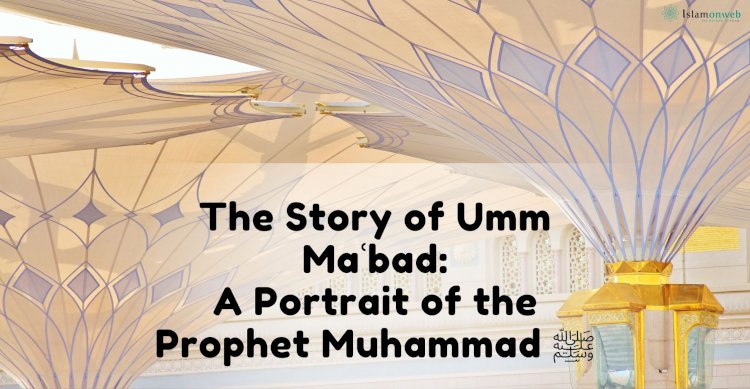



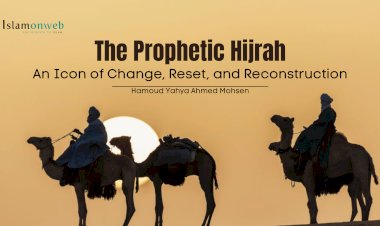
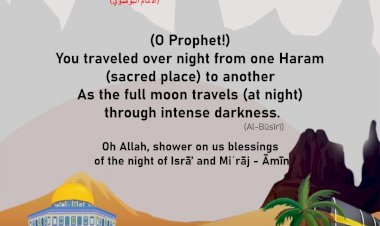
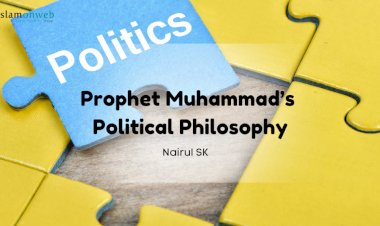
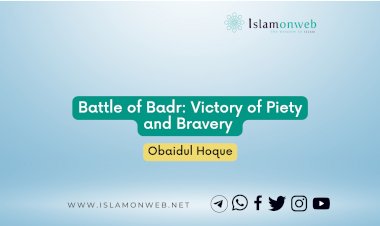
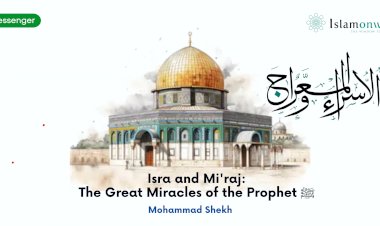
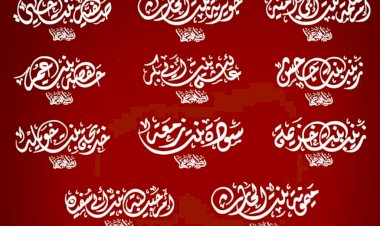














Leave A Comment